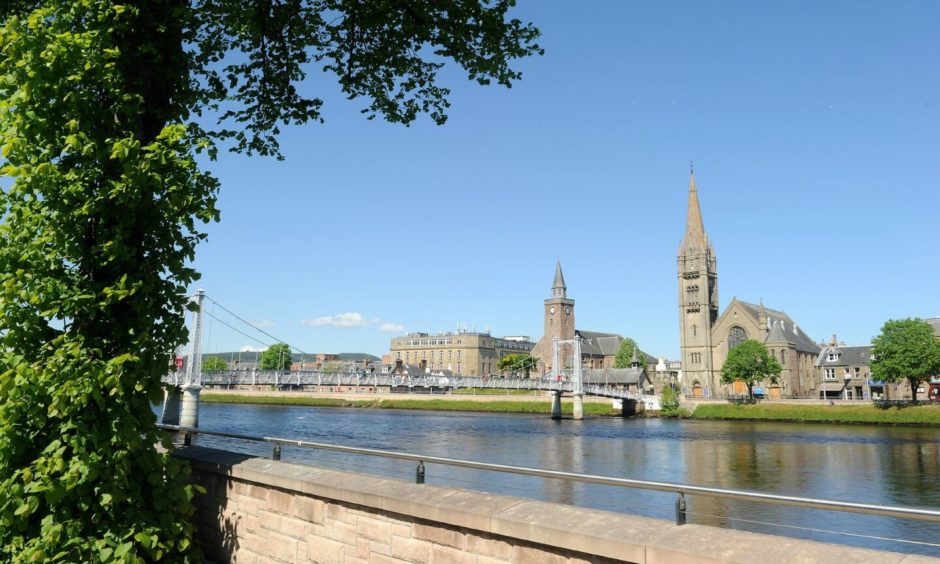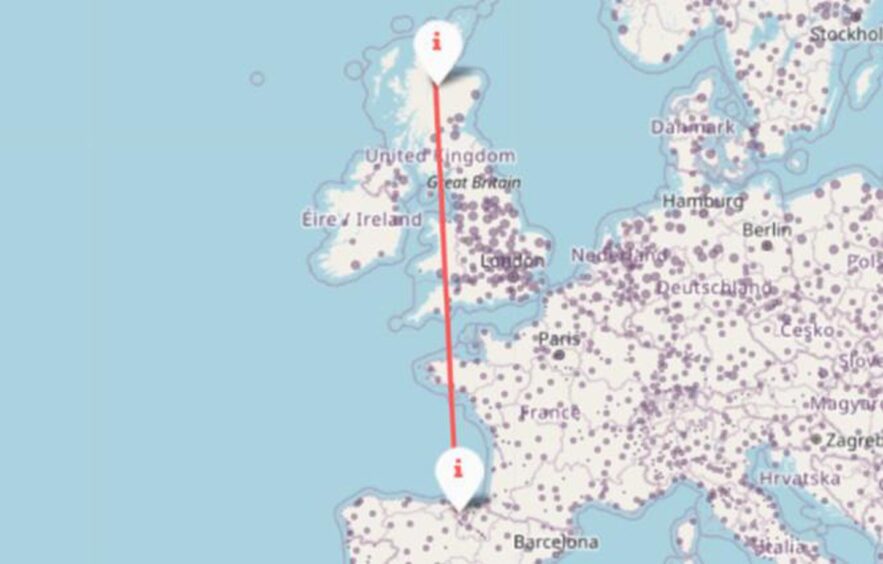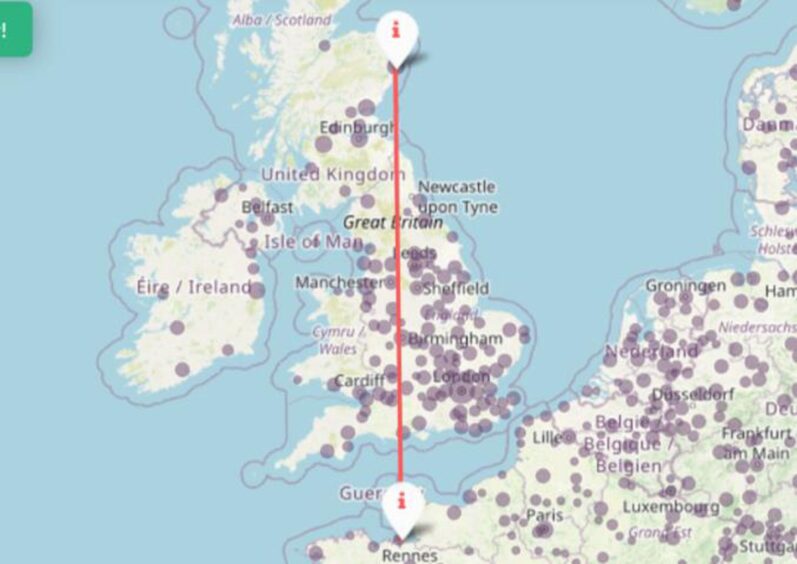Aberdeen and Inverness could be as warm as northern Spain and France in 60 years, climate experts have warned.
Researchers at the University of Maryland Centre for Environmental Science in the USA have created an app that predicts how global warming will impact climate change across the world by 2080 if emissions do not decrease.
The app reveals how climate will change in thousands of cities across the globe, linking them to locations that currently have similar weather conditions.
It predicts that Aberdeen’s climate in 2080 will be similar to the current climate of northern France.
Meanwhile, Inverness’ climate in 60 years’ time will be like that of northern Spain’s Basque Country at present.
What will Inverness’ climate be like in 2080?
Experts predict the climate in Inverness in 2080 will resemble the current climate in the Basque city of Guenes, which is 14 miles south-west of Bilbao.
This would mean summers in the Highland capital are expected to be 3.7C warmer and 6.2% drier.
Meanwhile, winters would be warmer and wetter, with temperatures 2.6C higher and 13.4% more rainfall.
What will climate feel like in Aberdeen in 60 years?
Experts revealed that in 2080, Aberdeen will have a climate similar to that of the town of Saint-Coulomb in northern France.
The app predicts that Aberdeen will have warmer and drier summers and winters if emissions remain high.
Summers in the Granite City are predicted to be 4.1C warmer and 9.7% drier.
Meanwhile, winters are expected to be 2.7C warmer and 0.3% drier.
Climate app helps people ‘understand why scientists are so concerned’
University of Maryland lead researcher Matthew Fitzpatrick said he hopes the app helps people “understand the magnitude of the impacts” caused by climate change.
The professor said: “In 50 years, the northern hemisphere cities to the north are going to become much more like cities to the south.
“Everything is moving towards the equator in terms of the climate that’s coming for you.
He continued: “I hope that it continues to inform the conversation about climate change.
“I hope it helps people better understand the magnitude of the impacts and why scientists are so concerned.”
The researcher concluded that the impact of climate will be most devastating at the equator.
He said: “The closer you get to the equator there are fewer and fewer good matches for climates in places like Central America, south Florida, and northern Africa.
“There is no place on Earth representative of what those places will be like in the future.”




Conversation